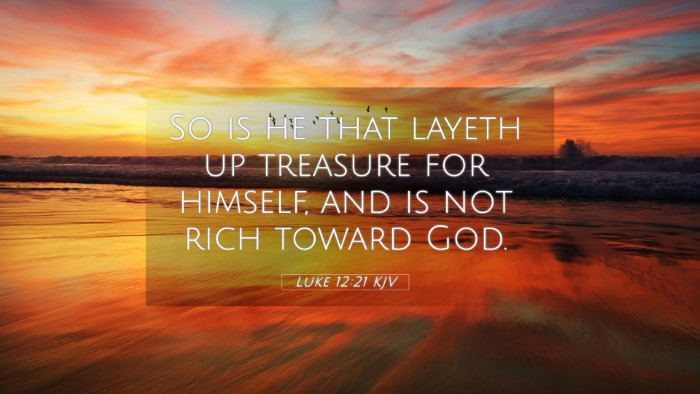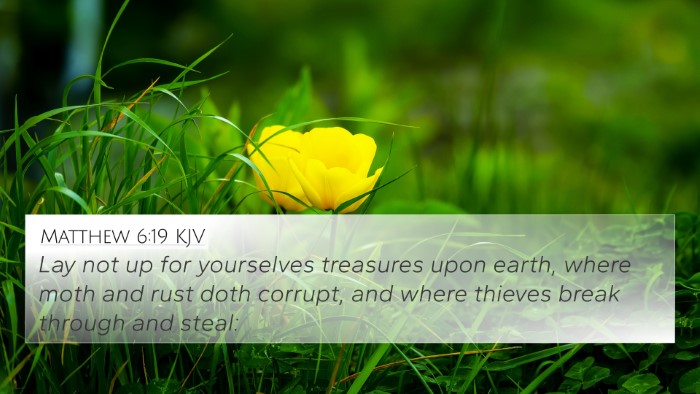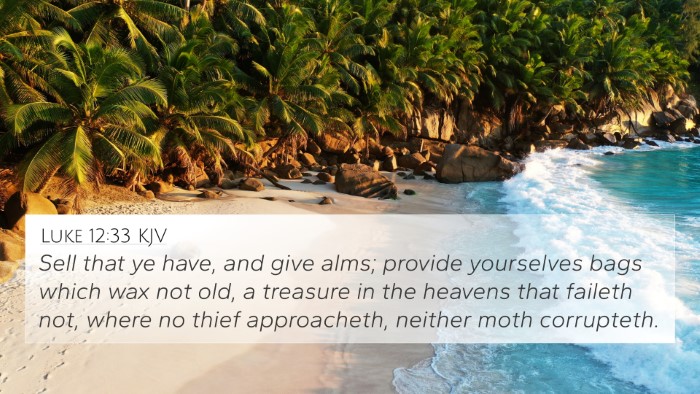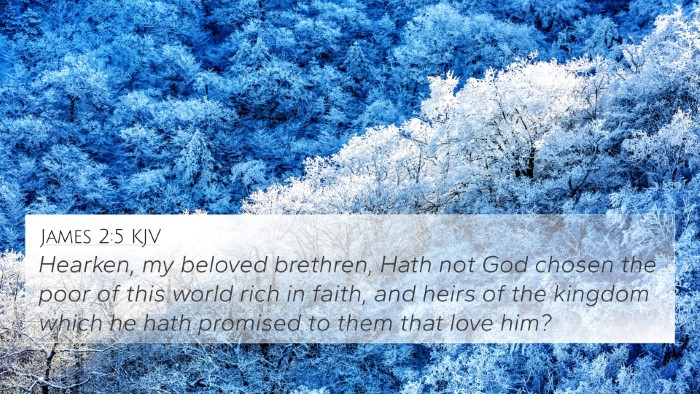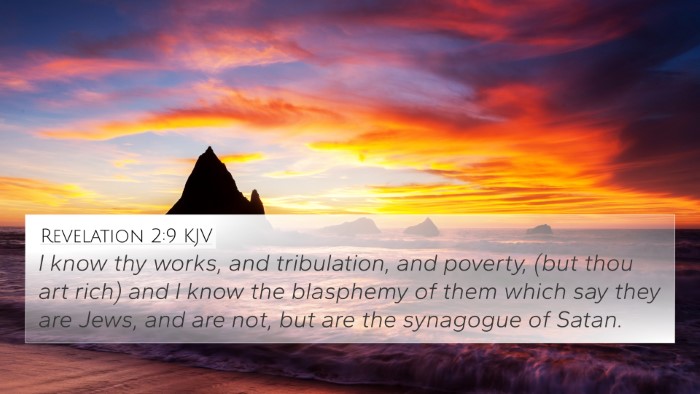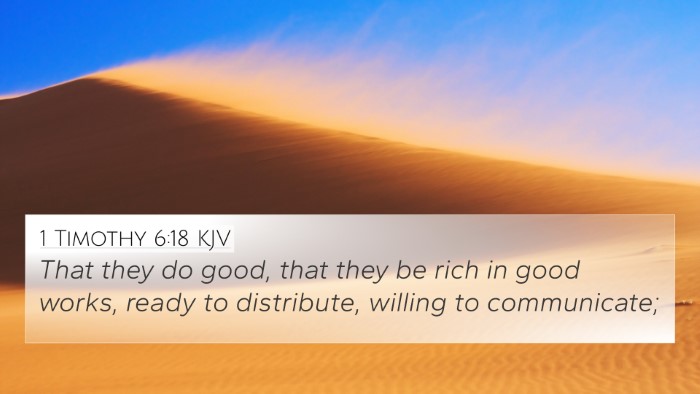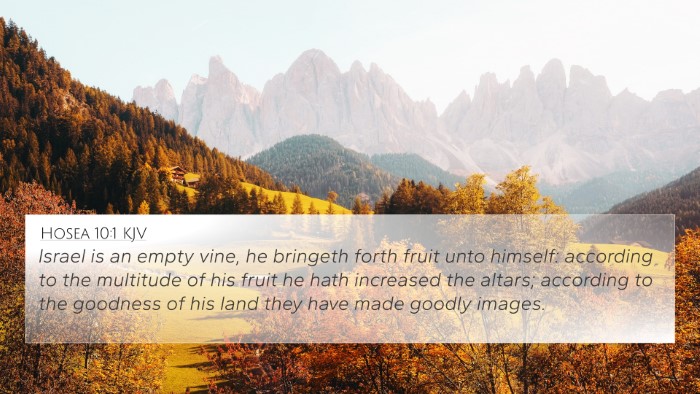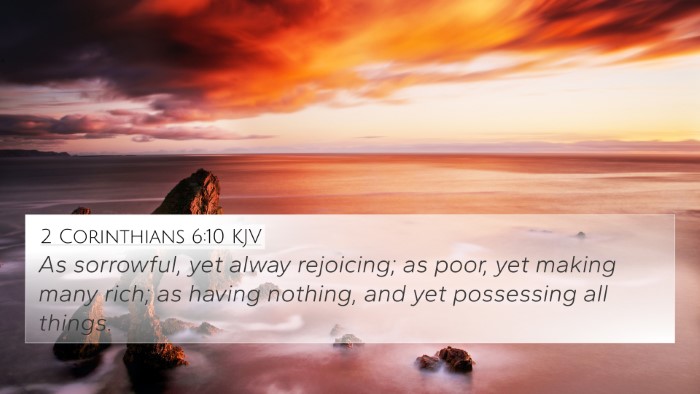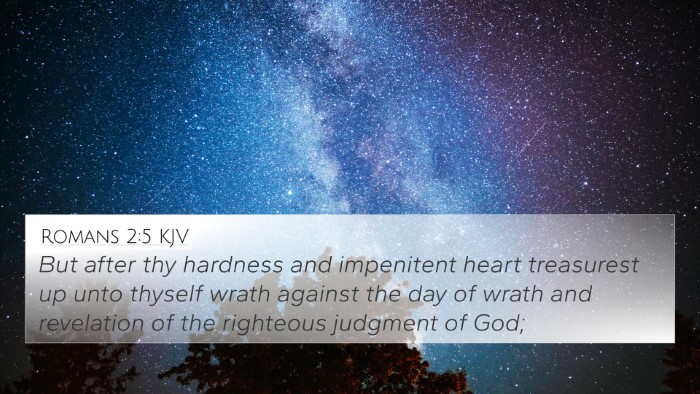Understanding Luke 12:21
Verse Reference: Luke 12:21 - "So is he that layeth up treasure for himself, and is not rich toward God."
Summary of Meaning
This verse from the Gospel of Luke teaches us about the futility of accumulating earthly wealth without a corresponding investment in spiritual riches. It emphasizes the importance of prioritizing our relationship with God over material possessions. The context of this teaching arises from a parable concerning greed and the shortsightedness of those who focus solely on earthly treasures.
Commentary Insights
- Matthew Henry: Henry expounds that the material wealth amassed is of no ultimate value if it is gained selfishly and without regard for God’s purpose. He notes that the person who hoards wealth for themselves misses the blessing of generosity and the true treasures found in spiritual fulfillment.
- Albert Barnes: Barnes highlights the consequences of being rich toward oneself rather than God. He advocates for the necessity of using wealth in ways that honor God and benefit others. Barnes suggests that true riches lie in one’s relationship with God and the investment in spiritual matters over material gains.
- Adam Clarke: Clarke emphasizes that the term "rich toward God" implies a life lived in accordance with divine expectations and generosity. He assesses that the love of money is often a barrier between oneself and spiritual wealth, culminating in warning against greed.
Cross-References and Parallel Verses
Luke 12:21 links to various scripture passages that reinforce its message. Here are some key cross-references:
- Matthew 6:19-21: "Lay not up for yourselves treasures upon earth... but lay up for yourselves treasures in heaven..." This verse similarly underscores the importance of where one places their treasures.
- 1 Timothy 6:17-19: This passage advises the rich to not be haughty but to trust in God, teaching them to be generous and willing to share, thus laying up treasures in heaven.
- Proverbs 11:28: "He that trusteth in his riches shall fall; but the righteous shall flourish as a branch," reinforcing the theme of the temporary nature of material wealth.
- James 4:13-14: "Go to now, ye that say, To day or to morrow we will go into such a city, and continue there a year, and buy and sell, and get gain..." This reminds us of the uncertainty of life and the futility of plans that are without regard for God.
- Luke 16:19-31: The parable of the Rich Man and Lazarus further illustrates the consequences of a life focused on material gain without concern for righteousness.
- Matthew 19:24: "And again I say unto you, It is easier for a camel to go through the eye of a needle, than for a rich man to enter into the kingdom of God," shedding light on the spiritual challenges associated with wealth.
- Ecclesiastes 5:10: "He that loveth silver shall not be satisfied with silver; nor he that loveth abundance with increase..." The sentiment is echoed that wealth provides no true satisfaction.
Thematic Connections
The central theme of Luke 12:21 relates to spiritual wealth versus material wealth. Cross-referencing biblical texts allows for a deeper understanding of these themes. Look out for:
- The importance of generosity - understanding stewardship of our possessions.
- The dangers of greed - reflected in various teachings from both the Old and New Testament.
- The urgency of a relationship with God - an overall call to focus on spiritual matters.
Tools for Cross-Referencing
For further study and exploration of the connections between Bible verses, consider using:
- Bible Concordance: A tool that lists Bible words and their occurrences for deeper scriptural analysis.
- Bible Cross-Reference Guide: These guides provide cross-referenced verses for thematic study.
- Comprehensive Bible Cross-Reference Materials: Resources designed for in-depth Bible study, offering examples of cross-referencing.
Application of Insights
As we reflect on Luke 12:21 and its accompanying commentaries, it’s imperative to ask ourselves how we prioritize our resources. Are we consciously investing in our relationship with God? Do we view our wealth as a means to serve and bless others, thereby echoing the teachings found across scripture?
In summary, Luke 12:21 serves as a pivotal reminder of the eternal nature of spiritual wealth compared to the fleeting nature of earthly possessions. Engage with the text and its related verses to enrich your understanding and inspire application in your life.

